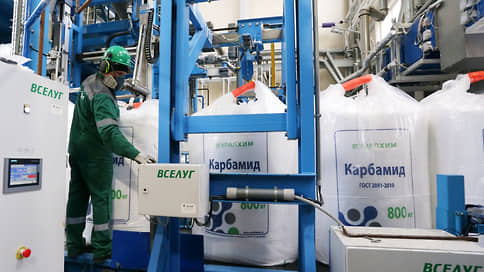Russian exporters intend to significantly increase the supply of fertilizers to Africa
[ad_1]

Against the backdrop of sanctions, Russian chemical companies intend to intensify supplies to African countries, increasing them several times over the next five years. African governments expect not only to import finished products, but also to create their own production in partnership with suppliers from the Russian Federation. However, they do not yet show great enthusiasm for this.
Uralchem plans to increase the supply of fertilizers to Africa tenfold, said the company’s CEO Dmitry Konyaev on the air of Rossiya 24 at the Russia-Africa summit. But, he said, “it will take time.” He recalled that over the past five years, Uralchem has supplied 2.5 million tons of fertilizers to African countries. In turn, the director of PhosAgro, Mikhail Rybnikov, said that the company intends to double the supply of its products to Africa in the next three years. In 2022, they amounted to 540 thousand tons, said Mikhail Sterkin, Deputy General Director of the company for sales, marketing and logistics. By the end of 2023, PhosAgro plans to increase sales to the continent by 15-20% after the launch of a new plant in Volkhov, located near the Baltic ports.
In general, last year Russian companies exported 1.6 million tons of fertilizers to Africa, occupying 10% of the market.
The largest supplier to the region is Phosagro (about 30%), about 25% comes from Eurochem, 24% from the Uralchem-Uralkali group, another 12% from Acron. The key sales markets are South Africa (ammophos), Morocco (ammonium nitrate, urea), Mali (urea, DAP/MAP), Tanzania (DAP, nitrogen), Côte d’Ivoire (nitrogen, NPK).
At the same time, representatives of a number of African states during the summit declared their readiness not only to import, but also to produce fertilizers on their territory. Thus, the Minister of Economy and Planning of Angola, Mario Augusto Gaetano Zhao, following the results of communication with the Phosagro delegation, said that the state is considering the possibility of building a chemical plant in the long term. Uganda also expects to attract Russian fertilizer producers to localize production. A similar proposal was made by Tanzania’s Prime Minister Kassim Majaliva, noting that the country has the necessary gas reserves for this.
Dmitry Konyaev, CEO of UralchemJuly 28th:
“We would like to increase deliveries to Africa by ten times. But it will take time.”
But Russian exporters are not yet ready for this option. As stated in an interview TASS Minister of Economy Maxim Reshetnikov, it is easier for Russian business to enter Africa with high value-added products. Alexander Sharabaiko, Deputy Chairman of the Board of Directors of PhosAgro, stressed that the company, when working on foreign markets, will take into account the experience gained after the imposition of sanctions. Over the past year and a half, the fertilizer industry has “paid a very high price” for attempts at overseas expansion, he said. “The main conclusion is very simple – everything that is outside the Russian Federation, if the geopolitical situation can change, may cease to belong to you. This applies to assets, and cash, and much more,” he stressed. Mr. Sharabayko noted that the first step for the development of cooperation should be the transfer of knowledge and competencies, although he did not rule out the transfer of technology in the future. Sources of Kommersant in the largest companies explain that now we can only talk about the development of trading in other countries.
Independent expert Leonid Khazanov calls the African fertilizer market very promising, and the plans of Russian companies to increase exports are quite feasible. Until 2030, in his opinion, deliveries can grow to a total of 4 million tons, taking into account active financial support for agriculture. At the same time, it is necessary to increase the level of knowledge of local farmers, who now, when applying, do not take into account significant differences in soils in different territories. Mr. Khazanov adds that the African market is highly fragmented, and the ability to purchase fertilizers from different countries is very different. He also notes that in order to create their own fertilizer production in Africa, it will first be necessary to solve the problems of their energy supply.
[ad_2]
Source link





